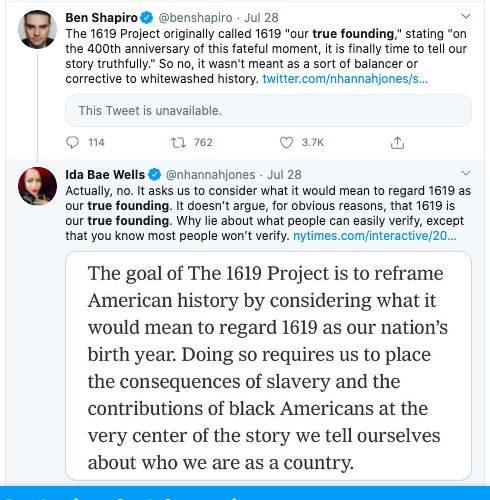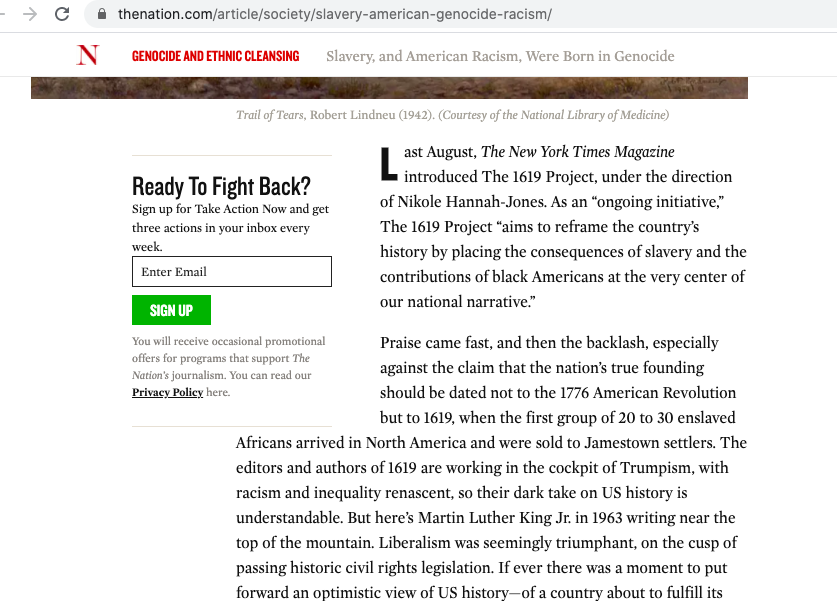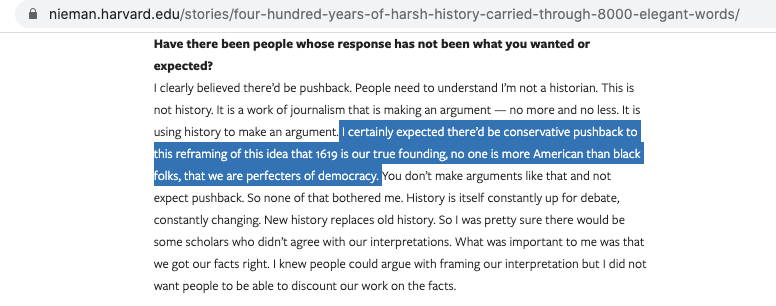This claim is staggering. Because I wrote an essay arguing that The 1619 Project was great in parts, but was wrong to argue that 1619 was our "true founding," I take exception to it. My essay is here: theatlantic.com/ideas/archive/… Was I duped by "the right" or duping others? A thread:
https://twitter.com/nhannahjones/status/1306941913556283401
Nikole Hannah Jones repeats this claim on CNN, where the interviewer credulously accepts her framing that the right is misrepresenting the project
https://twitter.com/CNN/status/1307029623943831552?s=20
Here she is calling Ben Shapiro a liar and saying that the wrongheadedness of his claim is easily verified. Am I going crazy? I thought. So I went back to check myself to make sure I didn't error in my essay. What I found is quite damning. 

There is, first, the original display copy: "The 1619 project is a major initiative from The New York Times observing the 400th anniversary of the beginning of American Slavery. It aims to reframe the country’s history, understanding 1619 as our true founding”
Numerous mainstream and left of center publications, as well as right of center publications, used that characterization *because that is what the NYT Magazine published.* Here is The Nation, not thinking that was factually wrong: 

At first I thought, NHJ should just say that the display copy wasn't quite right, and she intended to argue something different. As a journalist I can sympathize with copy written by editors that I wish was just slightly different. It happens! But.
How do you call other people liars who repeat an easily falsifiable claim when you have characterized the matter this way? 

People like me, who argued in good faith with the ideas that the New York Times Magazine and Nikole Hannah Jones put forth, do not deserve to be tarred as dupes or liars or sloppy for accurately characterizing their original presentation, now that they are walking it back.
• • •
Missing some Tweet in this thread? You can try to
force a refresh








